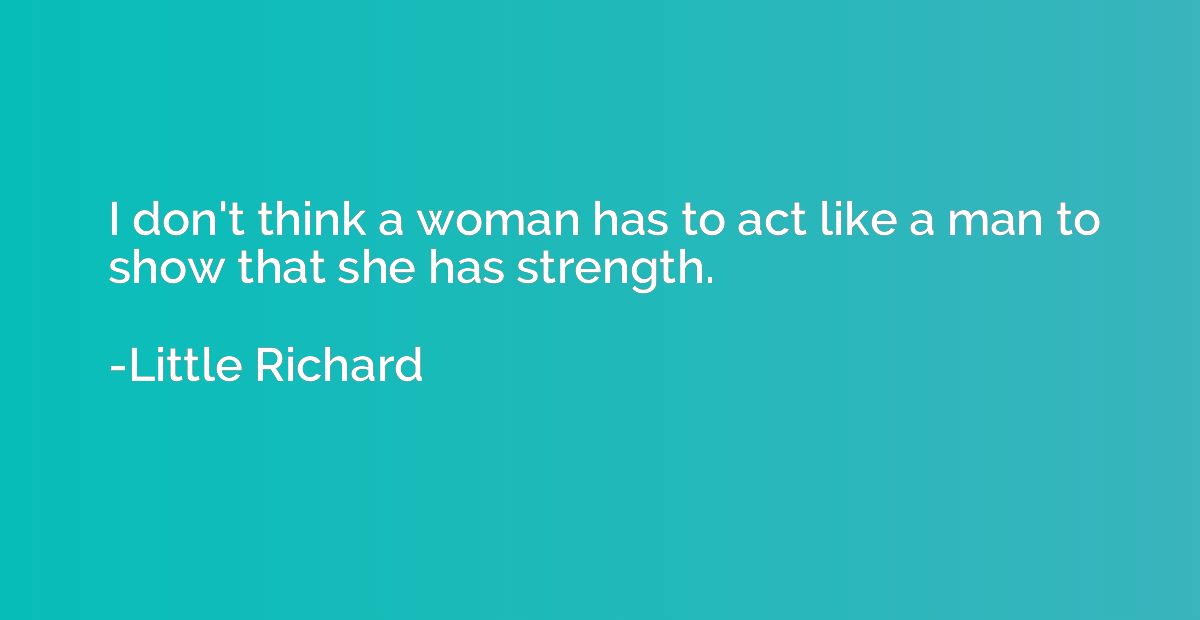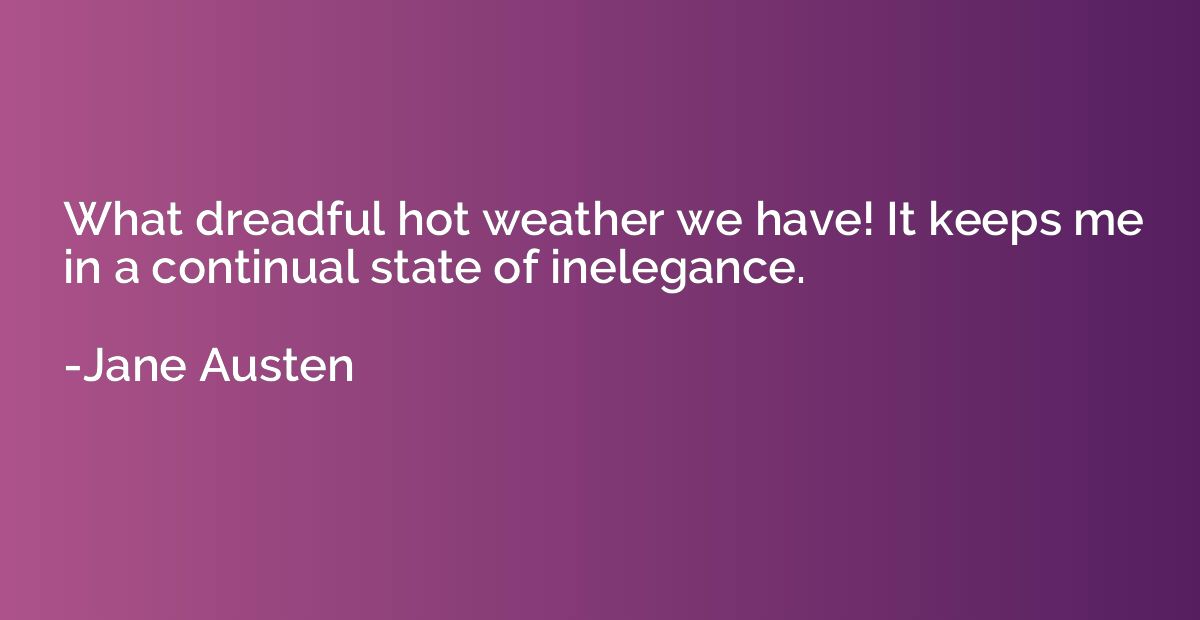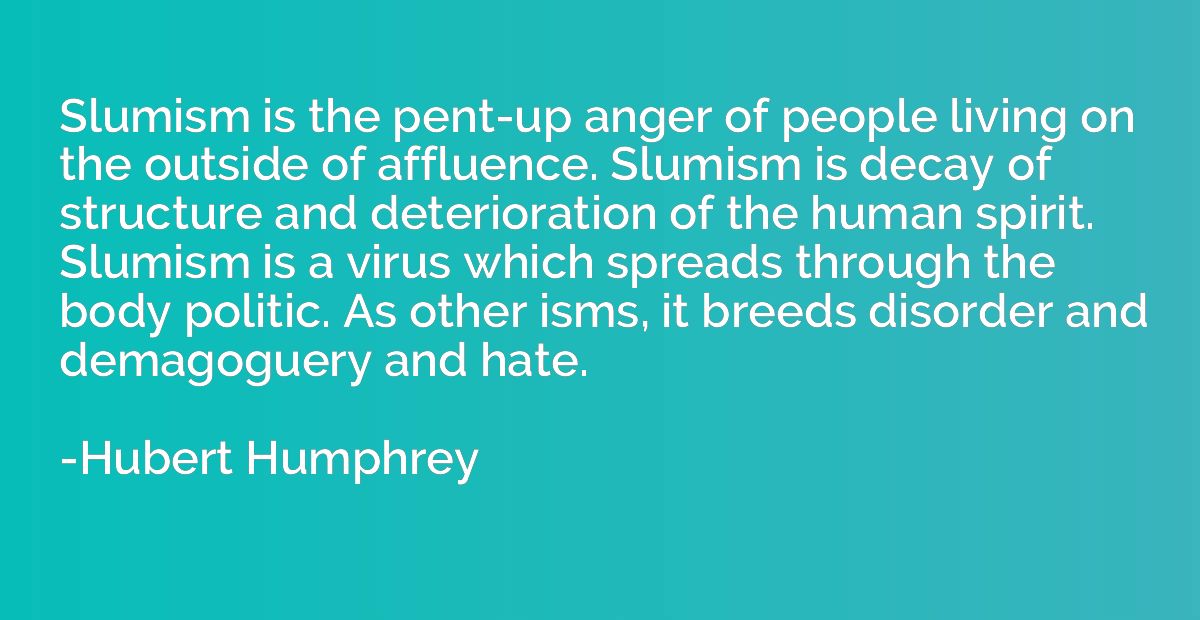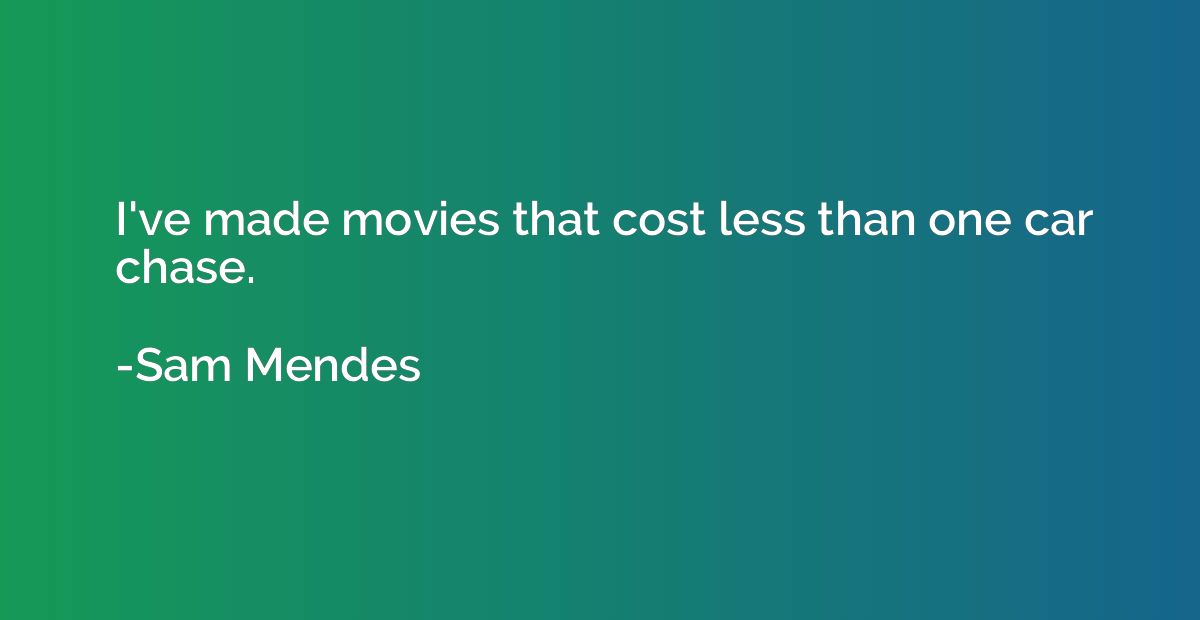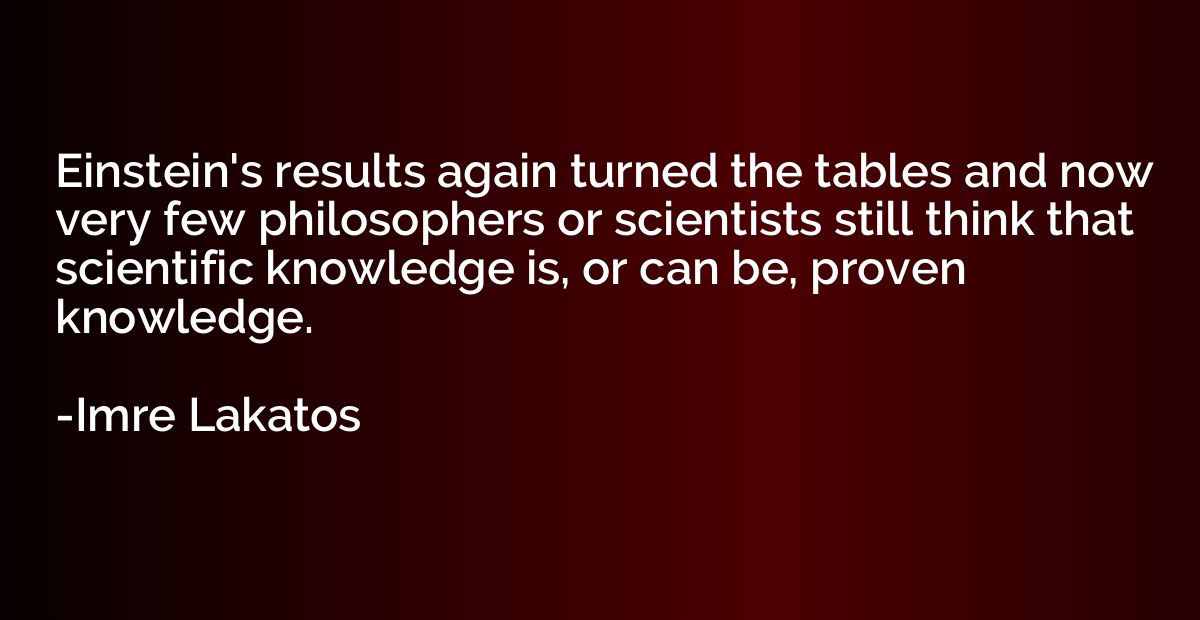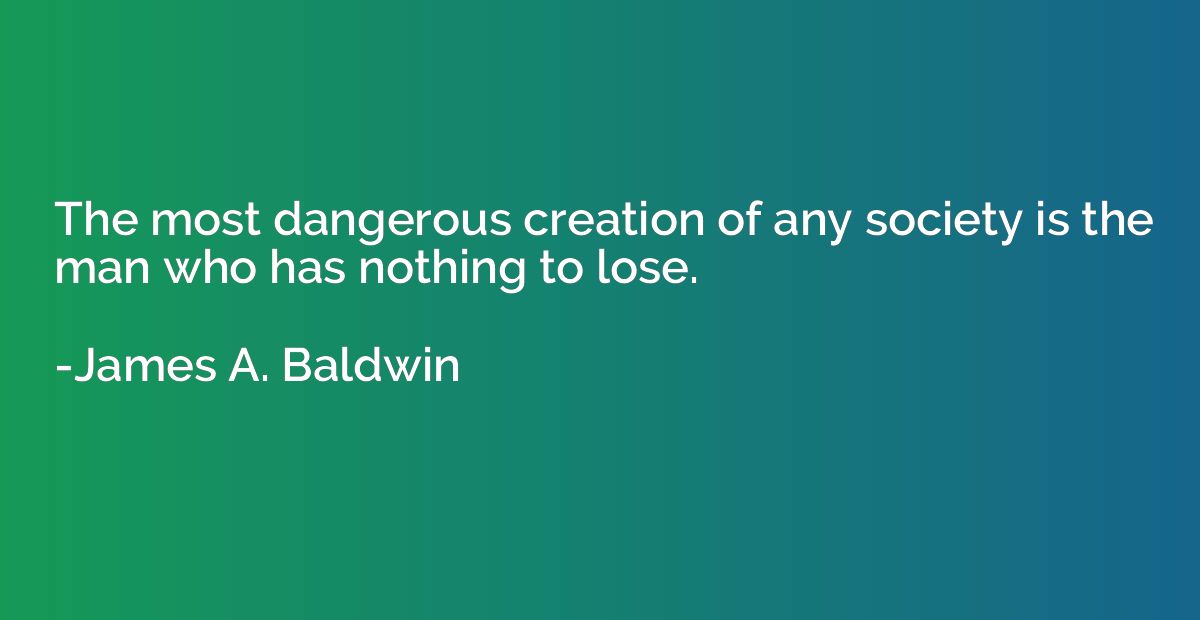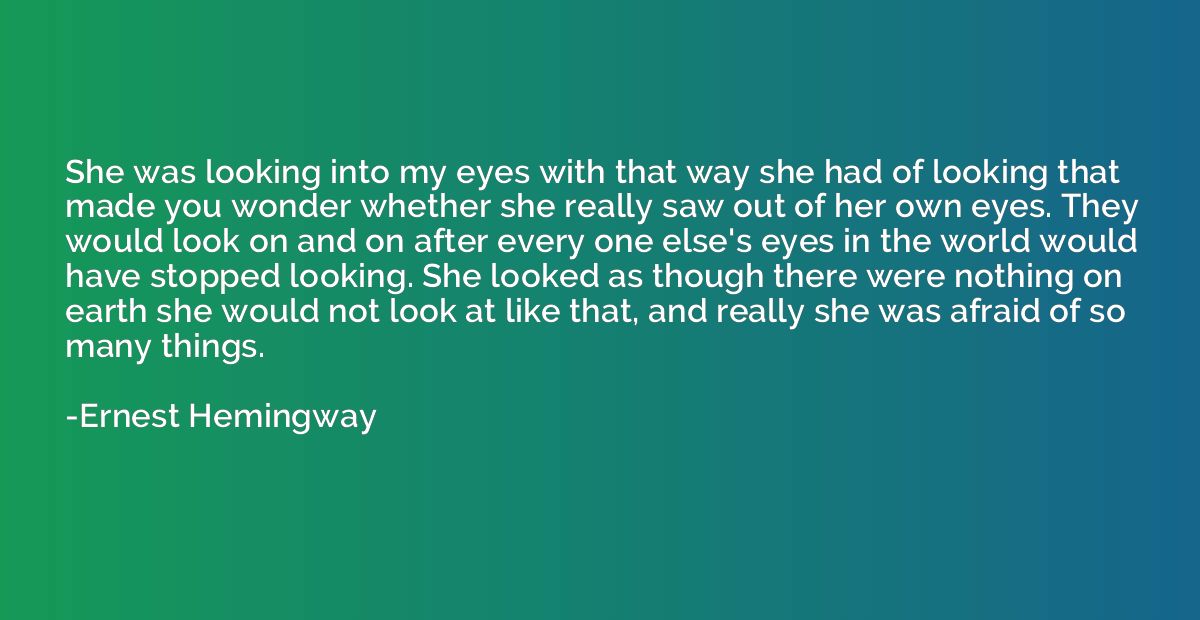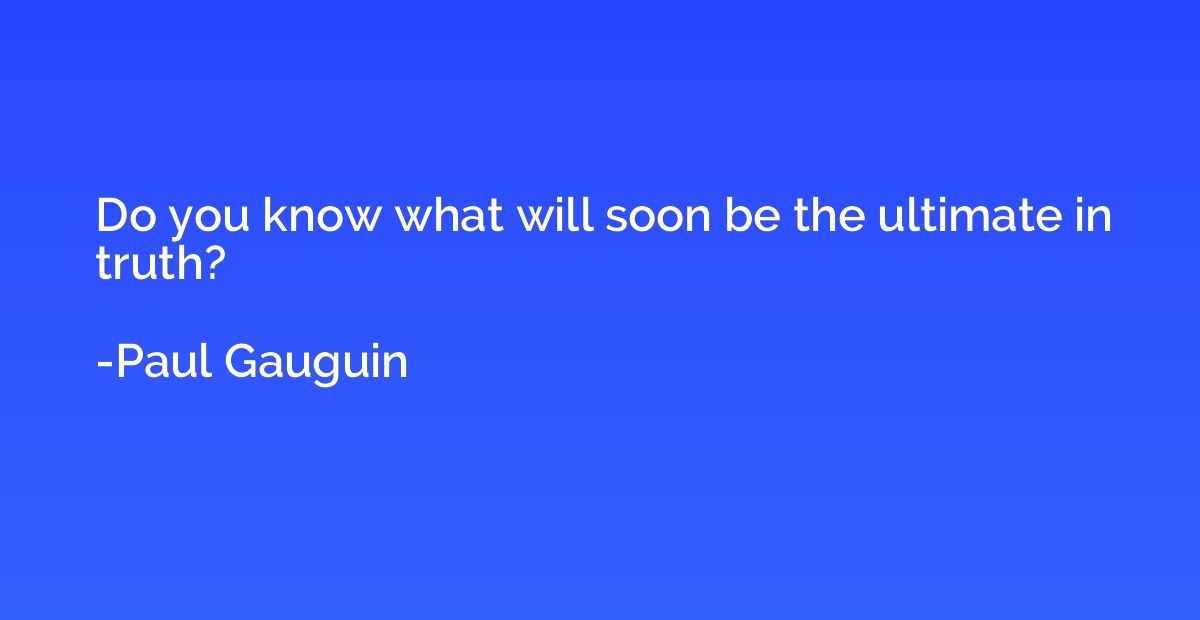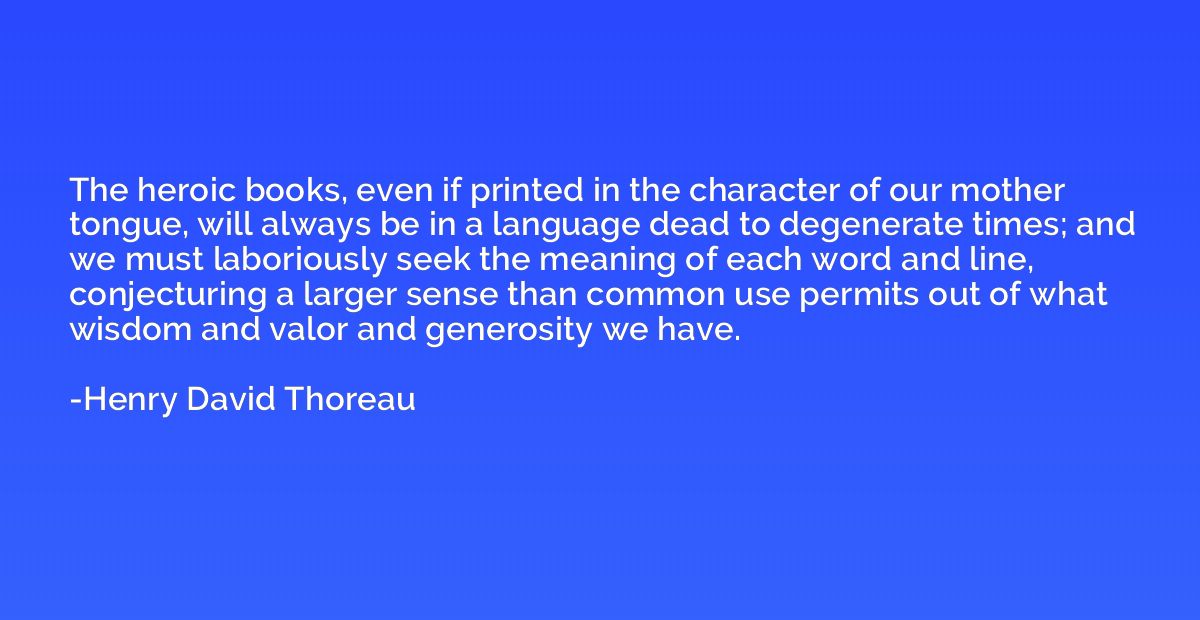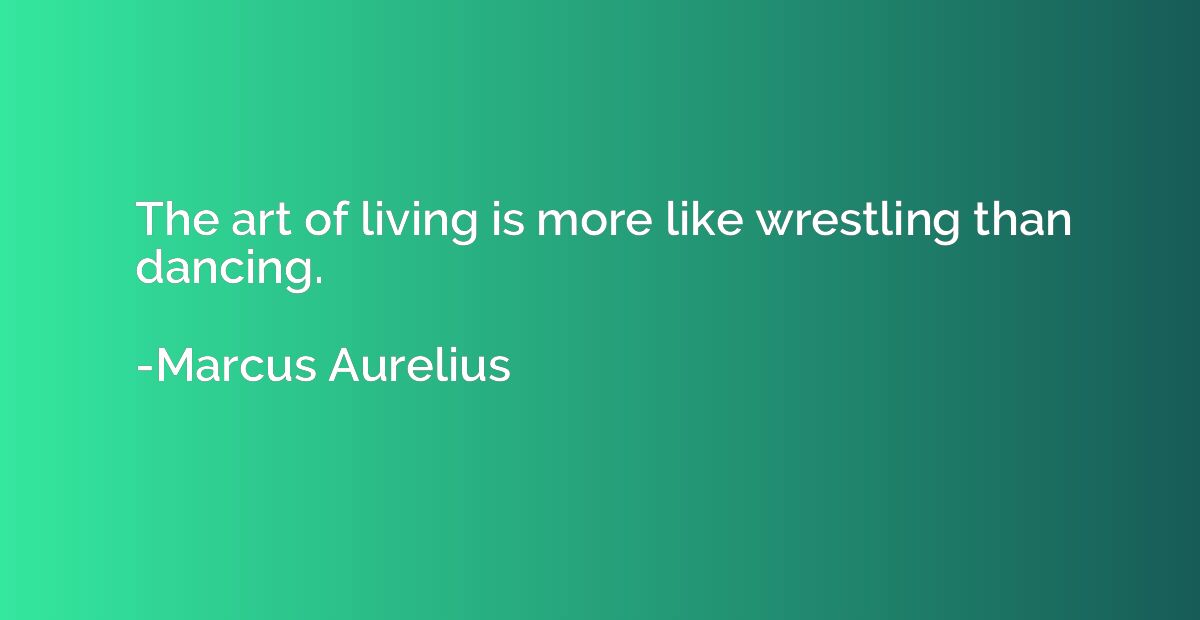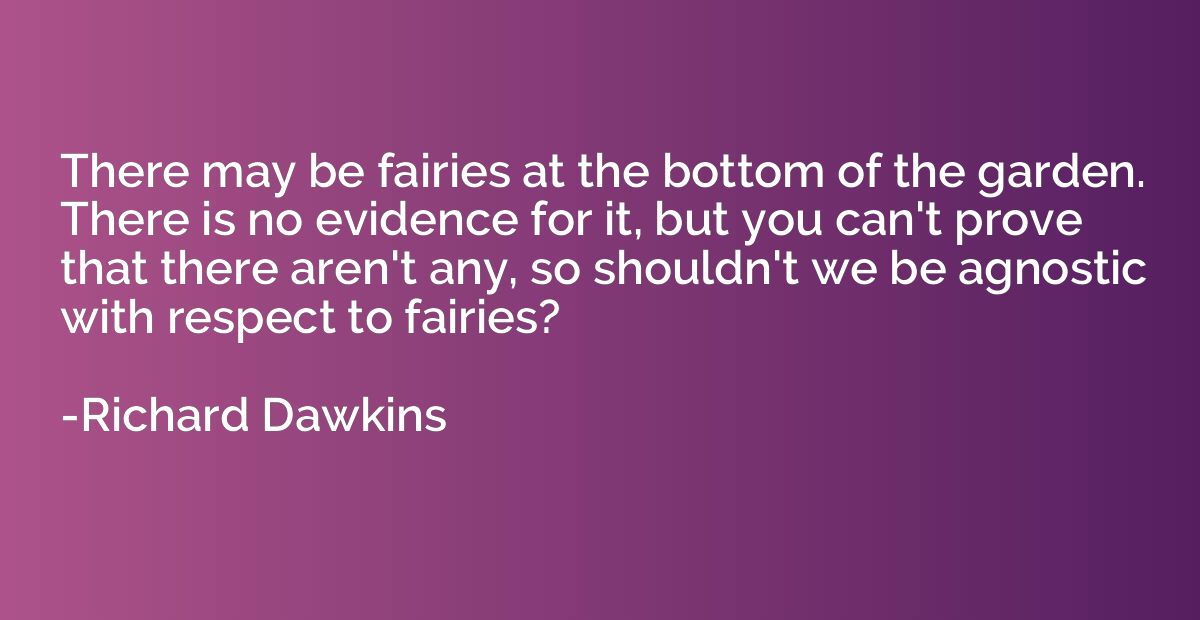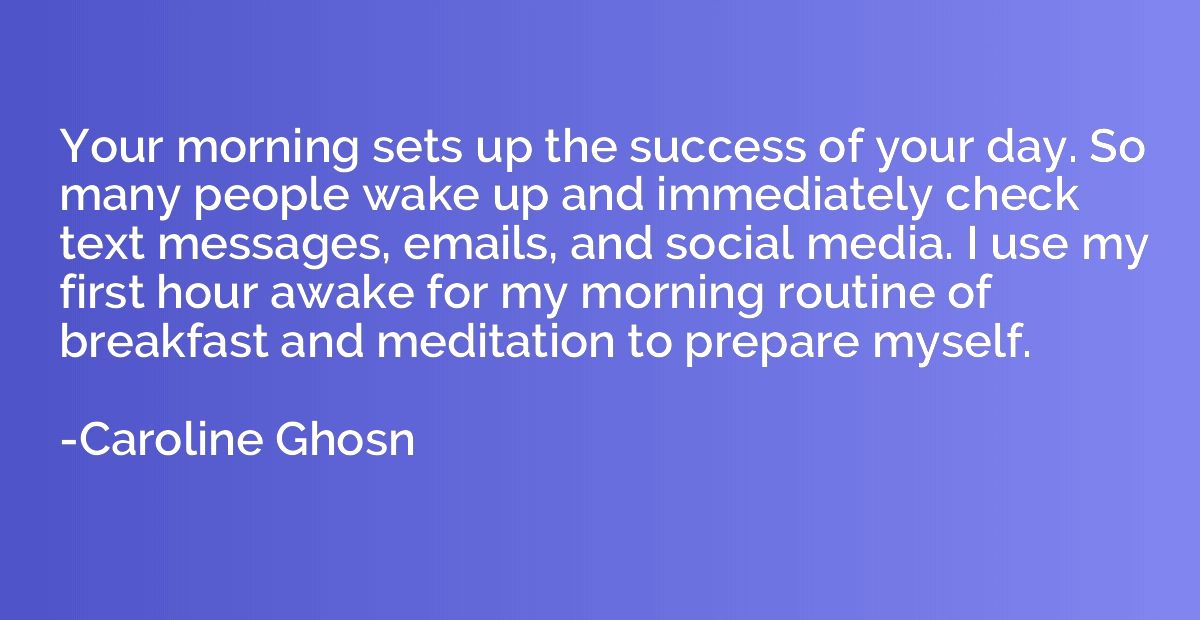Quote by Aleister Crowley
To me a book is a message from the gods to mankind; or, if not, should never be published at all. A message from the gods should be delivered at once. It is damnably blasphemous to talk about the autumn season and so on. How dare the author or publisher demand a price for doing his duty, the highest and most honorable to which a man can be called?
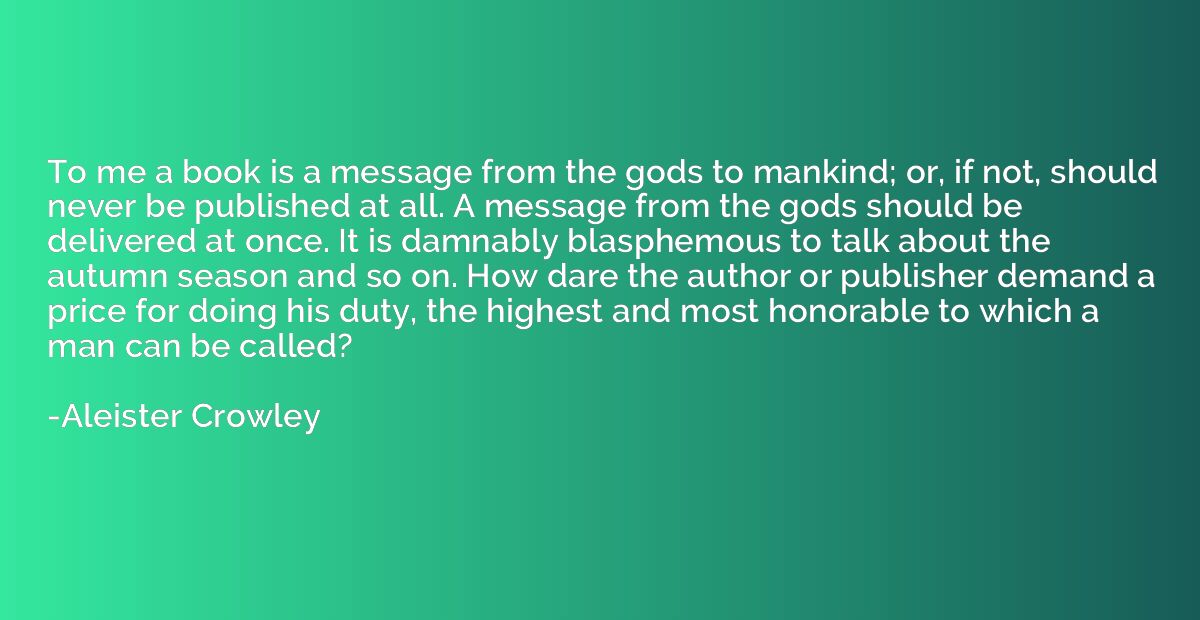
Summary
This quote expresses the belief that a book should hold exceptional value and significance, acting as a divine communication to humanity. It suggests that if a book does not possess such importance, then it should not be published. Furthermore, it implies that messages from higher powers should be promptly delivered without unnecessary embellishments or distractions. The quote questions the ethics of authors and publishers who seek personal gain in exchange for fulfilling their duty, which is regarded as the noblest calling a person can have.



